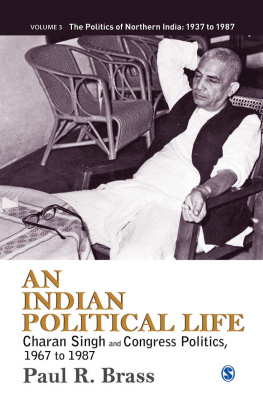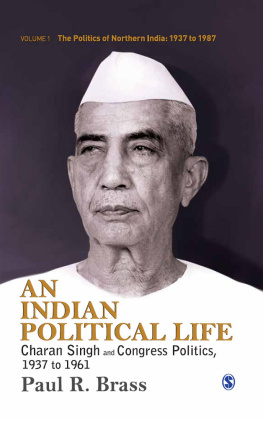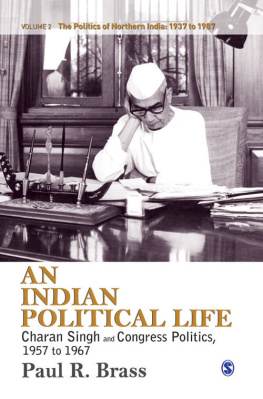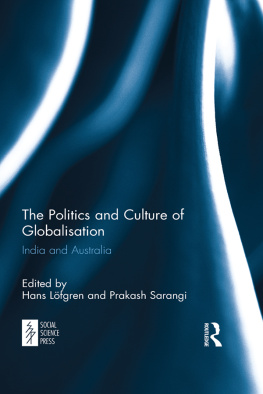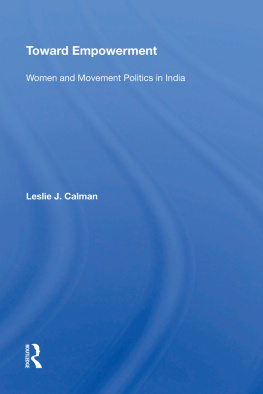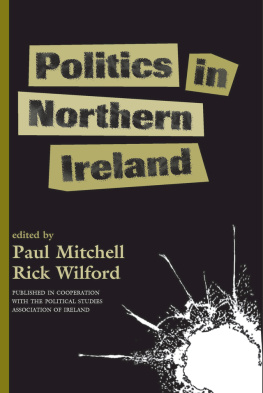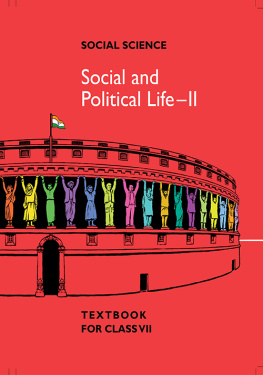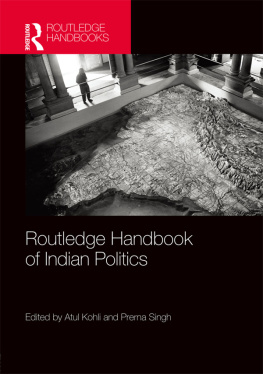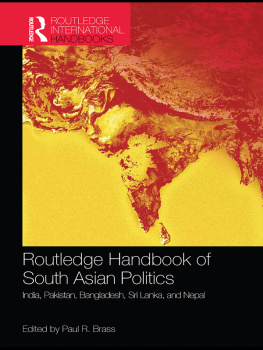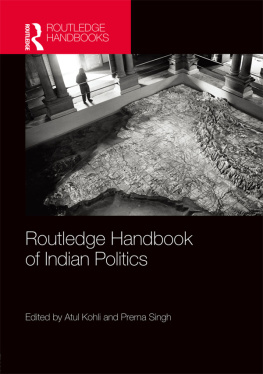Paul R. Brass - An Indian Political Life: 3 (The Politics of Northern India)
Here you can read online Paul R. Brass - An Indian Political Life: 3 (The Politics of Northern India) full text of the book (entire story) in english for free. Download pdf and epub, get meaning, cover and reviews about this ebook. year: 2014, publisher: SAGE Publications, genre: Politics. Description of the work, (preface) as well as reviews are available. Best literature library LitArk.com created for fans of good reading and offers a wide selection of genres:
Romance novel
Science fiction
Adventure
Detective
Science
History
Home and family
Prose
Art
Politics
Computer
Non-fiction
Religion
Business
Children
Humor
Choose a favorite category and find really read worthwhile books. Enjoy immersion in the world of imagination, feel the emotions of the characters or learn something new for yourself, make an fascinating discovery.
- Book:An Indian Political Life: 3 (The Politics of Northern India)
- Author:
- Publisher:SAGE Publications
- Genre:
- Year:2014
- Rating:5 / 5
- Favourites:Add to favourites
- Your mark:
- 100
- 1
- 2
- 3
- 4
- 5
An Indian Political Life: 3 (The Politics of Northern India): summary, description and annotation
We offer to read an annotation, description, summary or preface (depends on what the author of the book "An Indian Political Life: 3 (The Politics of Northern India)" wrote himself). If you haven't found the necessary information about the book — write in the comments, we will try to find it.
Paul R. Brass: author's other books
Who wrote An Indian Political Life: 3 (The Politics of Northern India)? Find out the surname, the name of the author of the book and a list of all author's works by series.
An Indian Political Life: 3 (The Politics of Northern India) — read online for free the complete book (whole text) full work
Below is the text of the book, divided by pages. System saving the place of the last page read, allows you to conveniently read the book "An Indian Political Life: 3 (The Politics of Northern India)" online for free, without having to search again every time where you left off. Put a bookmark, and you can go to the page where you finished reading at any time.
Font size:
Interval:
Bookmark:
AN INDIAN
POLITICAL LIFE
The Politics of Northern India: 1937 to 1987
VOLUME 3
AN INDIAN
POLITICAL LIFE
Charan Singh and Congress Politics,
1967 to 1987
PAUL R. BRASS

Title Page
Copyright Paul R. Brass, 2014
All rights reserved. No part of this book may be reproduced or utilized in any form or by any means, electronic or mechanical, including photocopying, recording or by any information storage or retrieval system, without permission in writing from the publisher.
First published in 2014 by

Sage Publications India Pvt Ltd
B1/I-1 Mohan Cooperative Industrial Area
Mathura Road, New Delhi 110 044, India
www.sagepub.in
Sage Publications Inc
2455 Teller Road
Thousand Oaks, California 91320, USA
Sage Publications Ltd
1 Olivers Yard, 55 City Road
London EC1Y 1SP, United Kingdom
Sage Publications Asia-Pacific Pte Ltd
3 Church Street
#10-04 Samsung Hub
Singapore 049483
Published by Vivek Mehra for Sage Publications India Pvt Ltd, typeset in 10/13 Berkeley by RECTO Graphics, Delhi, and printed at Saurabh Printers Pvt Ltd, New Delhi
Library of Congress Cataloging-in-Publication Data
The Library of Congress has cataloged the combined volume as follows:
Brass, Paul R., 1936
An Indian political life : Charan Singh and Congress politics, 1937 to 1961 / Paul R. Brass.
p. cm.
Includes bibliographical references and index
1. Singh, Charan. 2. Prime ministersIndiaBiography. 3. IndiaPolitics and government. 4. IndiaEconomic policy. I. Title.
DS481.S5513B73 954.052092dc22 2011 2011009657
[B]
eISBN: 9789351504535
The SAGE Team: Rudra Narayan, Vandana Gupta, Nand Kumar Jha and Dally Verghese
Cover photograph courtesy: Harsh Singh Lohit.
Dedicated to the memory of
Chaudhuri Charan Singh
Dedication
Contents
| AICC | All-India Congress Committee |
| BJP | Bharatiya Janata Party |
| BKD | Bharatiya Kranti Dal |
| BLD | Bharatiya Lok Dal |
| CBI | Central Bureau of Investigation |
| Ch. | Chaudhuri |
| Congress (O) | Indian National Congress (Organization) |
| Congress (R) | Indian National Congress (Requisition) |
| CPI | Communist Party of India |
| CPI (M) | Communist Party of India (Marxist) |
| DIG | Deputy Inspector General |
| GOI | Government of India |
| ITDC | Indian Tourism Development Corporation |
| JP | Jayaprakash Narayan |
| LD | Lok Dal |
| MISA | Maintenance of Internal Security Act |
| MLAs | Members of the legislative assembly |
| MP | Member of parliament |
| NDMC | New Delhi Municipal Council |
| PAC | Provincial Armed Constabulary |
| PM | Prime Minister |
| PSP | Praja Socialist Party |
| SP | Socialist Party |
| SSP | Samyukta Socialist Party |
| SVD | Samyukta Vidayak Dal |
| ULP | United Legislature Party |
| UP | Uttar Pradesh |
Volume III, the final volume in this trilogy, begins with the dramatic political event of the fall of the Congress in the most critical state of UP and the formation of the first non-Congress government. This event was of the utmost concern to Indira Gandhi, for she could not rule the country without a firm political base in its most populous state. Insofar as Charan Singh was concerned, it marked the beginning of his rise to power in the state and the beginning also of the dramatic and complicated struggle between him and Indira Gandhi.
Initially, however, the struggle in UP was between two men: C.B. Gupta and Charan Singh, the former with by far the largest political following in the state and the latter with a much smaller base, but enough of one to turn the balance in the struggle between Indira Gandhi and C.B. Gupta. At this stage, Charan Singh moved cautiously as always. The dramatic moves were made initially by the larger non-Congress parties: the Jan Sangh and the Samyukta Socialist Party (SSP). But, once the die had been cast, with him and his much smaller forcesjust enough to turn the balancehe made his first defection at a critical point in the struggle to become the first chief minister of a non-Congress government in Indias largest state.
Charan Singhs move at this time also marked the beginning of a life-long struggle between him and Indira Gandhi in which each at crucial times needed the political support of the other, neither trusted the other, and one, Indira Gandhi, was the superior strategist. Not only was Indira Gandhi the superior strategist, she was utterly unscrupulous in her determination to remain in power and the dominant force in the country, which she indeed became until her assassination on 31 October 1984. It is a matter that has not been pointed out elsewhere that there was a fundamental difference in scruples between these two. It may, to some, seem too strong to say that Indira Gandhi had no scruples, no consistent picture in her mind of what she believed the country needed while Charan Singh, with all his faults and moves from one party to another, did in fact buttress all those moves with firm, principled policies that he ever sought to implement when in power. However, I believe the record, carefully viewed, will sustain this verdict, even thoughand perhaps because the record would sustain itnot all her papers have been made public.
Scruples or not aside, Indira Gandhi was a consummate, clever, manipulative actor who, in fact, never had any clear idea of what policies were good for the country. Rather, in an echo of a famous phrase, she was certain that what was good for her was good for the country. She believed the country needed her. Moreover, she believed this from her very first moves in political life during her fathers political dominance.
But what need did she believe that only she could provide? First and most important, maintaining the unity of the country, in pursuit of which she acted as if it was in imminent danger of disintegration. For Indira Gandhi, power came first, policy later. Moreover, her policies covered an otherwise naked pursuit ofnot just powerbut domination of the country, which she clearly considered to be her birthright and of whose unity she considered herself the savior.
Charan Singh also, in a way, acted as if his policies were needed to save the country, of which the most important part comprised the cultivators of the soil. But the difference is that he would never go very far in political aggrandizement to compromise those policies. He fought for them because he believed in them, that they were best for the vast population of kisan s in the country, not because he depended on them for his power base.
Indira Gandhi, of course, must have felt that her policies were best for the country, but there was little thought behind it. Indeed, her policies amounted to the distribution of patronage and benefits along with patriotic rhetoric, on the one hand, and a battle against alleged demons out to destroy the country, which, at times, included the United States, Pakistan, smugglers, and her political opponents. Yet she seemed strangely caught between a belief in democratic principleswhich, however, was only skin deepand fantasies of a country in danger from all sorts of evil forces.
Next pageFont size:
Interval:
Bookmark:
Similar books «An Indian Political Life: 3 (The Politics of Northern India)»
Look at similar books to An Indian Political Life: 3 (The Politics of Northern India). We have selected literature similar in name and meaning in the hope of providing readers with more options to find new, interesting, not yet read works.
Discussion, reviews of the book An Indian Political Life: 3 (The Politics of Northern India) and just readers' own opinions. Leave your comments, write what you think about the work, its meaning or the main characters. Specify what exactly you liked and what you didn't like, and why you think so.

